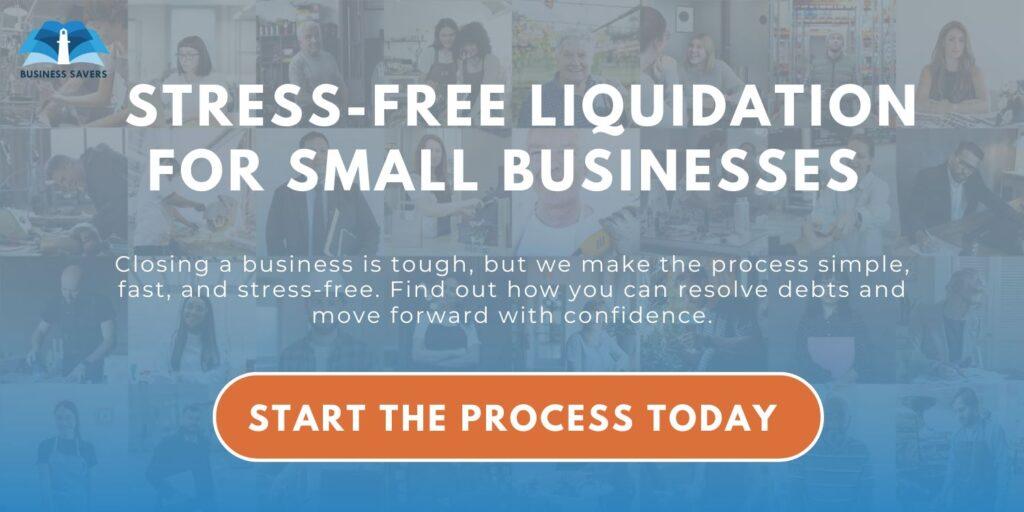Meeting tax obligations is one of your most important duties as a company director.
If you aren’t paying your tax liabilities when they’re due, the Australian Taxation Office is entitled to collect the debt in several ways. The ATO has the power to negotiate payment plans, issue Director Penalty Notices, take legal action against you, or wind up your business.
In this article, we’ll share practical tips to help small businesses manage tax debt, and discuss what you should do if you owe money to the ATO.
What is Business Tax Debt?
Business tax debt is the amount of money a business owes to the Australian Taxation Office (ATO) for unpaid taxes. This includes income tax, Goods and Services Tax (GST), Pay As You Go (PAYG) withholding, Superannuation Guarantee Charges (SGC), and more.
Common Types of Business Tax Debt
Australian businesses are required to pay a wide range of taxes. There are four common types of tax debt we encounter:
- Income tax – Every business pays tax on its income. If you’re a sole trader or in a partnership, you’ll put your business earnings on your personal tax form. Companies pay a flat rate of 30% (or 25% in some cases). Trusts have their own tax rates, depending on how trust income is distributed.
- Goods and Services Tax (GST) – Businesses are required to register for GST if they make over $75,000 per year from GST-eligible sales. Money that’s collected via GST is paid to the ATO.
- Pay As You Go (PAYG) Withholding – When paying workers, businesses are required to withhold their income tax. PAYG Withholding is sent to the ATO on behalf of your employees.
- Superannuation Guarantee Charge – Australian employers are required to pay superannuation into their employees’ nominated funds. If this money isn’t paid on time and in full, you are required to pay the superannuation guarantee charge. This effectively requires your business to pay interest on unpaid superannuation amounts.
What Happens if Your Business Doesn’t Pay Its Tax Debt?
If you don’t pay your tax debts when they’re due, the ATO might:
- Contact you by phone, email or text message to request payment.
- Add a general interest charge (GIC) to the amount you owe, which grows every day.
- Send a garnishee notice to your bank or people who owe your business money telling them to pay the ATO. The ATO can issue garnishee notices without a court order.
- Obtain a court order to seize and sell business assets.
- Issue Director Penalty Notices (DPNs) to make company directors personally liable for certain business tax debts.
- Take legal steps, like sending a summons or statutory demand, which could end with your company being wound up in liquidation.
The best way to avoid these issues is to stay ahead of your tax debt. Seek professional help immediately if your business is struggling to pay its taxes.

Spotting Signs of Tax Debt Troubles
Tax debt can sneak up on small businesses. It often goes unnoticed until it’s a major problem. If you spot the early warning signs, you can take action before the issue gets worse.
Here are some key signs that your business might be facing tax debt problems:
- Tax lodgements are overdue (e.g. BAS or income tax returns).
- Receiving notices or demands from the ATO regarding overdue payments.
- Struggling to pay your suppliers, workers and other creditors on time.
- Cash flow problems, which may require you to shuffle money around in order to make payments.
As a company director, you have a responsibility to keep an eye on your business’ financial and tax obligations. Make sure you’re keeping up with tax lodgements and payments.
How Tax Debt Affects Your Business
1. Extra Fees and Interest
The ATO may charge fees and interest on unpaid taxes. These costs add up quickly and increase the size of your debt.
Any extra money you spend on tax debts is cash that you’re unable to reinvest into the business.
2. Reduced Access to Credit
In certain circumstances, the ATO may disclose business tax debt to credit bureaus. This can significantly limit your business’ ability to access new lines of credit, which impacts day-to-day operations and long-term growth opportunities.
3. Director Penalty Notices
The ATO can issue a Director Penalty Notice and make company directors personally liable for unpaid taxes that relate to:
- Pay As You Go Withholding
- Goods and Services Tax
- Superannuation Guarantee Charge
Given the scale of company tax debs, you may need to declare bankruptcy in order to resolve personal liability.
4. Legal Action
Like other creditors, the ATO has a legal right to recover the money they are owed. If they can’t recover the money any other way, the ATO can commence legal action against your business.
This can include issuing DPNs, statutory demands or seeking a court order against your business. In the worst case, the ATO may commence insolvency proceedings against your business.
5. Reduced Business Growth
Tax debt can make it tough to grow your business in the long run.
The money you allocate to repaying debts is money that can’t be spent on day-to-day needs. This includes things like sales and marketing initiatives that could grow the business.
Over the long-term, a lack of cash flow and reduced access to credit makes it difficult to put new ideas into action.
6. Personal Stress
The stress and time you spend dealing with tax debt can have a serious effect on mental health. Instead of thinking about long-term plans, you might worry about the money troubles caused by unpaid taxes. This can make you less motivated, lead to bad choices and leave your business without a clear direction.
Negotiating Tax Debts With the ATO
The ATO may be willing to negotiate your business tax debts. Depending on the circumstances, they may:
- Put you on a payment plan,
- Waive general interest charges, and/or
- Reduce the total amount of debt.
Negotiating with the ATO is a good way to manage tax debt and show that you’re willing to pay the money you owe. It can also prevent the ATO from taking stronger steps, like pursuing legal action.
How to Talk to the ATO About Business Tax Debt
When you contact the ATO about your tax debt, you need to be open and honest about your situation. Explain why the debt exists and what you’re doing to repay the money. Be ready to talk about your business’ cash flow, income, expenses and overall financial health.
Stages of ATO Debt Collection
The ATO is entitled to collect debts in the same ways as other creditors. The only difference is they have additional powers to garnish wages, issue DPNs and withhold tax credits.
The ATO follows a similar process to private creditors when collecting debts:
- Initial contact – The ATO will contact you about business tax debt before taking any other action. They may contact you via phone, text message, email or letter to notify you of the debt and any general interest charges that apply.
Seek professional advice and respond to this initial contact immediately, even if you are unable to pay your tax debts. The sooner you take action, the more likely that you will be able to negotiate with the ATO.
- Withholding tax credits – The ATO has the power to automatically withhold any tax credits your business is entitled to. These are applied directly to your debt.
- Debt collection – In some circumstances, the ATO may use external debt collection agencies to recover the tax debt. Debt collectors can contact you, establish a payment plan and/or take legal recovery actions.
- Legal recourse – If the ATO has been unsuccessful in contacting you, negotiating a payment plan or collecting money from your business, it may take the matter to court.
Courts can compel your business to pay its debts. If the business can’t pay the debt, the court may seize and sell assets and/or redirect income towards the debt.
- Director Penalty Notices – The ATO may issue a DPN to make directors personally liable for certain tax debts. If you receive a DPN, you have a limited time to respond and avoid personal liability.
- Liquidation – In the worst case scenario, the ATO may commence liquidation proceedings against your business. This happens where you fail to respond to a statutory demand. The ATO is the initiator in approximately 20% of company liquidations.
Practical Tips for Managing Your Business Tax Debt
1. Make Your Tax Obligations a Priority
Tax lodgements and payments should be a high priority for every business. Make sure you know what’s happening in your business, what’s owed to you, and when your tax obligations are due.
Work with your adviser to determine how you pay your taxes. Make sure you are setting aside money to pay taxes as part of your business’ budget.
2. Reduce Your Accounts Receivable Time
Getting paid on time can be challenging. When clients are late in paying their bills, it makes it difficult to pay your taxes on time.
Consider implementing processes that reduce your accounts receivable days. This could include:
- Setting clear payment terms and ensuring clients are aware of these terms
- Establishing debt collection procedures
- Offering incentives for early or on-time payment of invoices
- Training your staff on how to approach clients about overdue invoices
- Staying in regular contact with clients to remind them of payment due dates
- Collecting partial payments up front, or progress payments throughout a project
Each of these things can improve cash flow and reduce accounts receivable days, making it easier to pay your tax liabilities on time.
3. Submit Tax Lodgements on Time
Work with your accountant to lodge activity statements and tax returns on time. Even if you can’t pay your tax liabilities, lodging your statements is a show of good faith and can help in negotiations with the ATO.
4. Talk to the ATO to get Ahead of Tax Debt
Be proactive about contacting the ATO if you’re unable to pay business taxes on time. They are more likely to negotiate a reasonable payment plan if you are attempting to fulfil your obligations.
5. Seek Professional Advice
Every business needs help with finances and taxation. Make sure you build a relationship with professionals, including your accountant, tax lawyer and a professional adviser.
Professional advice can go a long way to improving your business’ financial position and avoiding tax debt. If you do owe money to the ATO, these professionals can help you figure out the best way to manage the situation and reach an outcome that suits everybody involved.
Get On Top of Tax Debt With Advice From Business Savers!
The ATO is often a creditor when a company is liquidated. Like other creditors, the ATO is entitled to recover any debts it’s owed, and they have a wide range of tools they can use to reclaim their money.
Talk to Business Savers if you’re struggling with business tax debt. Our team of Registered Liquidators have vast experience in dealing with the ATO. We can help you reach a reasonable solution, potentially avoiding director personal liability and legal action from the ATO.
Contact us online to book a confidential consultation, or speak with our team to learn more about managing tax debt as a small business.


Recent Comments